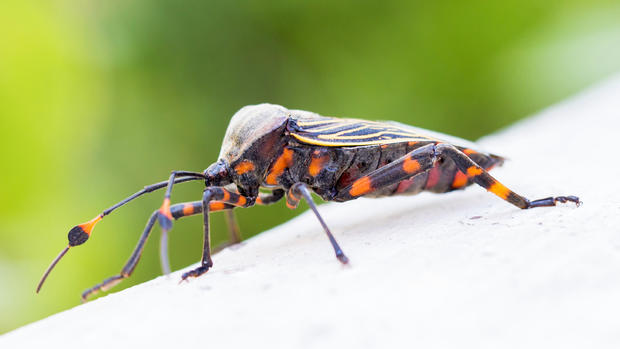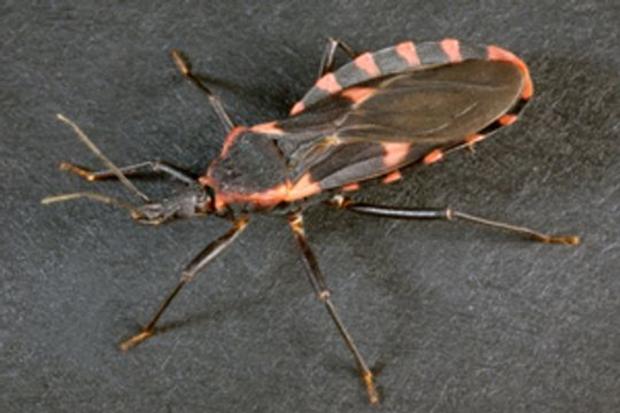Health Department Tracking Blood-Sucking 'Kissing Bugs' In Colorado
DENVER (CBS4) -- The Colorado Department of Health and Environment is tracking the presence of blood-sucking "kissing bugs" in the state -- and warning people not to touch them. The CDPHE says the Triatoma protracta is not new to Colorado but it is not commonly reported.
"Triatoma protracta has a long-standing relationship with its rodent hosts in Colorado; it has not recently moved here," officials said.
The bugs' bite is often painless, but the insect can pass parasites though their feces that cause Chagas disease.
"It bites you and it sucks your blood," Neil Roy, a doctor at Siani Hospital in Maryland, said. "While it does that, it defecates. The parasite is in the feces of the insect which then goes in through the bite which gets you sick."
The CDC says Chagas disease can be deadly, but it usually causes symptoms that include severe redness, itching, swelling, welts and hives.
CDPHE officials said not all triatomine bugs are infected with the parasite and the likelihood of human infection from contact with a triatomine bug in the United States is low, even when the bug is infected.
The insect usually has a band around the edge of the body that is striped with orange or red markings. It looks similar to the box elder bug that's commonly found in Colorado.
Shannon Barbare with the CDPHE clarified that we are not seeing large numbers of this insect in Colorado at this time.
"There is no increased cause for concern," Barbare stated.
The department has increased surveillance through the Colorado kissing bug study to determine the distribution of the insects and if there are other species in Colorado.
"We advise people not to touch any possible kissing bugs they might find," Barbare stated.
The CDPHE does want people to send them the bugs they may find. If you find a kissing bug, call the department at 303-692-2700.
"If you find a bug you suspect is a triatomine, do not touch or squash it. Place a container on top of the bug, slide the bug inside, and fill it with rubbing alcohol or, if not available, freeze the bug in the container. Then, you may take it to your local extension service, health department, or a university laboratory for identification," the CDC stated.
The CDC recommends the following to prevent an infestation: remove trash, wood, and rock piles from around the home, clear out any bird and animal nests from around the home, keep outdoor lights away from homes, dog kennels, and chicken coops, and inspect and seal any cracks or gaps in your home.
The bugs usually can be found:
- Beneath porches
- Between rocky structures
- Under cement
- In rock, wood, brush piles, or beneath bark
- In rodent nests or animal burrows
- In outdoor dog houses or kennels
- In chicken coops or houses
(© Copyright 2019 CBS Broadcasting Inc. All Rights Reserved. The Associated Press contributed to this report.)





